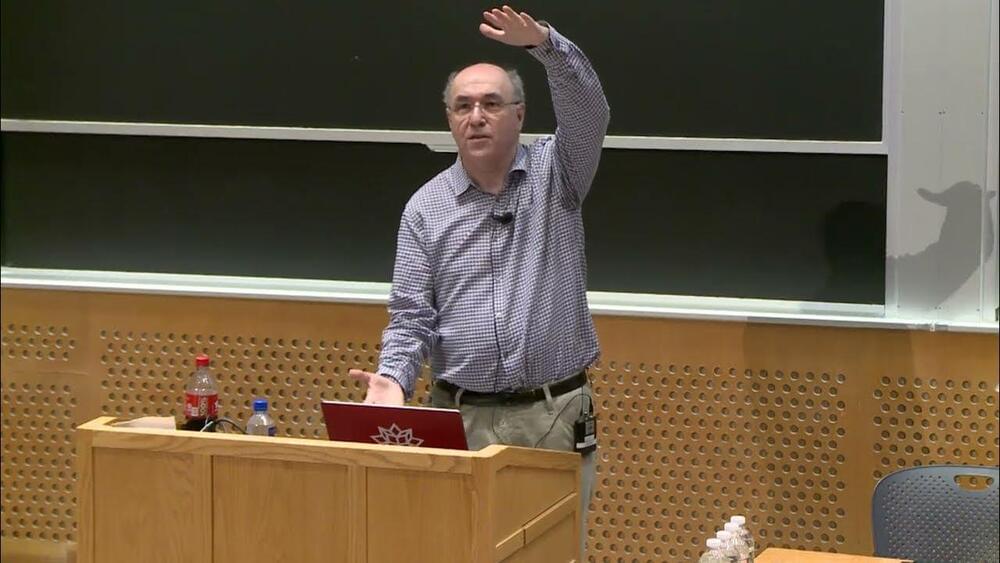Oct 6, 2023
Liver cancer screening: Detecting a ‘silent’ condition
Posted by Shubham Ghosh Roy in category: biotech/medical
Dr. Fasiha Kanwal discusses what you need to know about liver cancer detection and screening.
Dr. Fasiha Kanwal discusses what you need to know about liver cancer detection and screening.
A study from Ann & Robert H. Lurie Children’s Hospital of Chicago demonstrated that Botulinum toxin (Botox) injected in the pylorus during endoscopy improves chronic nausea and vomiting in children who have a disorder of gut-brain interaction (DGBI). These debilitating symptoms not attributed to a defined illness have previously been called functional gastrointestinal disorders before the newer DGBI classification. The study’s findings point to a novel understanding of the condition’s pathology – pylorus that is failing to relax and allow food to effectively pass into the small intestine resulting in symptoms of nausea, vomiting, early satiety and bloating.
Results were published in the Journal of Pediatric Gastroenterology and Nutrition.
“Our results suggest that chronic nausea and vomiting might be caused by pyloric dysfunction, rather than abnormal peristalsis, which is the rhythmic contraction and relaxation of digestive tract muscles needed to move foods and liquids through the gastrointestinal system,” said lead author Peter Osgood, MD, gastroenterologist at Lurie Children’s and Assistant Professor of Pediatrics at Northwestern University Feinberg School of Medicine. “This is a paradigm shift in our understanding of mechanistic pathology. Importantly, it opens the door to a more targeted use of Botox specifically in children who are found to have pyloric dysfunction during endoscopy, and for whom the current medications are not effective.”
The dean of Stanford University’s medical school thinks artificial intelligence will transform the medicines you take, the care you get, and the training of doctors.
A team of New York University computer scientists has created a neural network that can explain how it reaches its predictions. The work reveals what accounts for the functionality of neural networks—the engines that drive artificial intelligence and machine learning—thereby illuminating a process that has largely been concealed from users.
The breakthrough centers on a specific usage of neural networks that has become popular in recent years—tackling challenging biological questions. Among these are examinations of the intricacies of RNA splicing—the focal point of the study—which plays a role in transferring information from DNA to functional RNA and protein products.
“Many neural networks are black boxes —these algorithms cannot explain how they work, raising concerns about their trustworthiness and stifling progress into understanding the underlying biological processes of genome encoding,” says Oded Regev, a computer science professor at NYU’s Courant Institute of Mathematical Sciences and the senior author of the paper, which was published in the Proceedings of the National Academy of Sciences.
MindsDB connects AI models to datasources. Contribute to/mindsdb development by creating an account on GitHub.

The Impact of chatGPT and other large language models on physics research and education (2023)
Event organizers: Kevin Burdge, Joshua Borrow, Mark Vogelsberger.
Session 3: “The use of large language models in teaching/administration”
Capstone talk: “LLMs for Physics, and Physics for LLMs“
Speaker: Dr Stephen Wolfram (Wolfram Research)
Beyond fish? 3D-printed vegan salmon hits the markets in Europe thanks to foodtech startup Revo Foods.
With millions of tons of human waste we could make mountains of graphene microchips :3.
A trio of researchers, two from the University of Chemistry and Technology, Praha 6, the other the University of Toronto, has demonstrated that chicken feces can be used to make graphene a better catalyst. In their paper published in the journal ACS Nano, Lu Wang, Zdenek Sofer and Martin Pumera argue that researchers churning out papers describing newly found dopants for graphene are not contributing to understanding graphene’s electrocatalytic abilities.
Graphene has been found to have conductivity and strength characteristics that make it a desirable material for use in commercial products. Some have suggested it might also make an excellent catalyst if the right dopant can be found. To that end, researchers have been testing various materials as dopants for graphene to find new ways to use graphene. In their paper, Pumera et al. argue that rather than simply testing materials one after another with graphene, researchers might make better use of their time by devising experiments designed to better understand the fundamentals of graphene’s electrocatalytic abilities. To drive their point home, they wondered if any “crap” they tested would work as a possible dopant—to find out, they tested chicken crap. They prepared samples of graphene oxide using two different methods, then combined each with chicken feces—they then used thermal exfoliation on the results to make graphene.
Physicists at the National Ignition Facility are learning how to better control crushingly violent “shots”.
